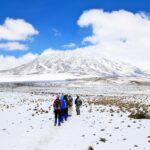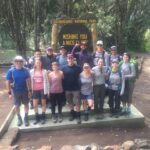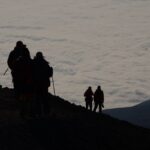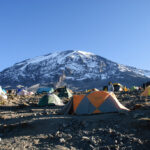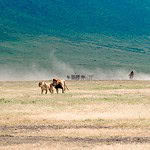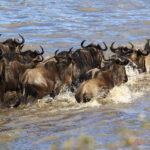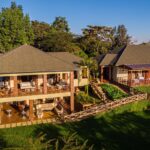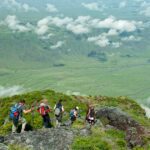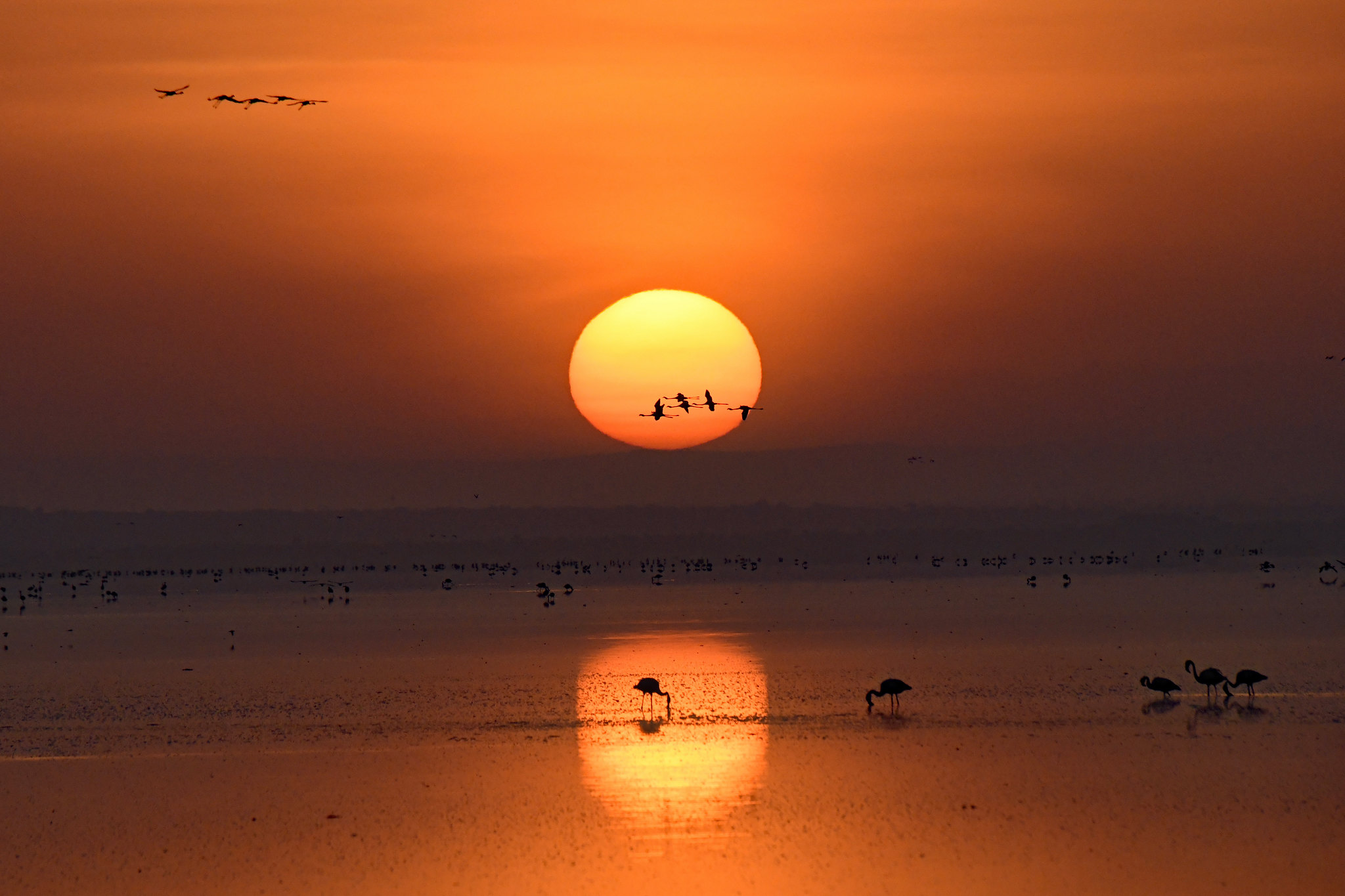Table of Contents
Starry Nights: Stargazing & Astronomy Safaris in Tanzania
Tanzania’s vast, unpolluted skies create the perfect backdrop for an astronomy safari Tanzania. Far from the glare of city lights, these immersive experiences allow travelers to witness the full splendor of the cosmos — from the glowing arch of the Milky Way to drifting constellations and mesmerizing meteor showers. It’s a surreal combination: the untamed African wilderness beneath your feet and the boundless universe above.
An astronomy safari Tanzania takes you deep into national parks like the Serengeti, Ngorongoro Crater, and Tarangire, where open horizons and elevated plateaus provide optimal stargazing conditions. Guests gather around campfires as expert guides and passionate astronomers share ancient cosmic myths, local tribal legends, and modern insights into planets, galaxies, and nebulae. High-powered telescopes are provided, offering close-up views of Saturn’s rings, Jupiter’s moons, and distant star clusters you’d never see back home.
What makes an astronomy safari Tanzania truly special is the harmony between earth and sky. During the day, you’ll encounter elephants, lions, and wildebeest on thrilling game drives; at night, you’ll explore the heavens in complete serenity. Some lodges even offer stargazing decks or arrange night drives that blend wildlife spotting with skywatching.
For amateur astronomers, photographers, and romantics alike, an astronomy safari Tanzania is more than a trip—it’s a cosmic journey unlike any other. Whether you’re watching the Southern Cross rise over the baobab trees or capturing a time-lapse of star trails above the savannah, these celestial adventures leave lasting impressions.
1. What Is an Astronomy Safari Tanzania?
An astronomy safari Tanzania is a specialized journey that blends traditional game drives with nighttime sky observation. It takes travelers beyond the typical wildlife itinerary and invites them to explore the stars, planets, and deep-sky objects above.
These safaris typically include:
-
Expert-led telescope sessions
-
Cultural storytelling from local tribes like the Maasai
-
Astrophotography opportunities
-
Nighttime wildlife experiences paired with stargazing
Whether you’re a seasoned astronomer or a casual sky-watcher, an astronomy safari Tanzania adds a cosmic dimension to your African adventure.
2. Why Choose a Tanzania Astronomy Safari?
Why should you choose an astronomy safari Tanzania over a traditional safari?
Because it offers something truly extraordinary:
-
Ultra-dark skies: With little to no light pollution in national parks, the stars shine brilliantly.
-
Expert guidance: Learn about the planets, constellations, and ancient myths from astronomers and local guides.
-
Cultural depth: Discover how the Maasai interpret the stars and how Swahili sailors used the night sky to navigate.
-
Photographic beauty: Capture both wildlife silhouettes and stunning galactic shots in one trip.
-
Extended evenings: Safaris don’t end after sunset—night becomes a key part of the experience.
An astronomy safari Tanzania combines education, culture, and adventure in the most memorable way.
3. Best Locations for Astronomy Safari Tanzania
Not all areas are equal when it comes to stargazing. The best astronomy safari Tanzania experiences happen in regions that are remote, elevated, and wide open.
Here are the top places to stargaze:
Serengeti National Park
Its endless plains and wide horizons offer optimal visibility. With almost no artificial light and high altitude, the Serengeti is a stargazer’s paradise.
Ngorongoro Crater
The crater’s rim provides elevated views and stunning dark-sky clarity. Many lodges offer sky platforms specifically for astronomy tours.
Tarangire National Park
Quiet and less visited than Serengeti, Tarangire offers a peaceful environment with riverbanks that reflect the stars above.
Ruaha National Park
Located in southern Tanzania, Ruaha offers some of the clearest skies in Africa due to its remoteness. It’s a favorite for astronomers and solitude seekers alike.
4. When to Go on an Astronomy Safari Tanzania
Timing is everything. A successful astronomy safari Tanzania depends on aligning with the best sky conditions.
Here’s when to plan your trip:
-
Dry Season (June–October): These months have little to no cloud cover, offering consistent stargazing conditions.
-
New Moon: Go when the moon is darkest to see faint deep-sky objects like galaxies and nebulae.
-
Milky Way Season (November–March): This period reveals the galactic core over the African sky—an unforgettable sight.
Bonus tip: Some tours even align with meteor showers like the Geminids or Perseids.
5. A Typical Night on an Astronomy Safari Tanzania
Your evening begins with sundowners by the fire, watching the African sunset fade into twilight. Then, the stars begin to appear.
A night on an astronomy safari Tanzania might look like this:
-
Guides set up telescopes while guests sip warm drinks.
-
You observe Saturn’s rings, Jupiter’s moons, and even deep-sky objects like the Orion Nebula.
-
Cultural guides share ancient African star myths alongside scientific explanations.
-
Wildlife roams in the background—hyenas calling, elephants rustling, lions roaring.
-
You retire to your lodge or tent, the Milky Way still glowing overhead.
It’s both peaceful and powerful.
6. Equipment & Preparation
To make the most of your astronomy safari Tanzania, a bit of preparation goes a long way.
What to Pack:
-
Warm clothing: Nights can be chilly, even in dry season.
-
Red-filter headlamp: Protects night vision.
-
Star apps or chart: Sky Guide, Stellarium, or SkyView can help you identify constellations.
-
Binoculars: Compact and great for both wildlife and wide-sky views.
-
DSLR or mirrorless camera: Capture long-exposure shots of the Milky Way.
-
Notebook: Record constellations, sightings, and cultural stories.
Some lodges provide advanced equipment—just check ahead of time.
7. Lodges & Camps Offering Astronomy Safari Tanzania
Many lodges in Tanzania are now tailoring their services to include astronomy safari Tanzania offerings. Here are some standout options:
Serengeti Sky Camp
A mobile tented camp with transparent ceilings and dedicated stargazing setups. Astronomy guides host nightly sky sessions.
Ngorongoro Astro Lodge
Built on the crater rim, this eco-lodge features dark-sky certified platforms and telescope rentals.
Tarangire Star Camp
Offers an in-house observatory and astronomer-led sessions, perfect for beginners and families.
Ruaha Star Tented Lodge
Remote and rugged, this camp provides the clearest skies and rawest night-sky views imaginable.
Each location adds its own charm to your astronomy safari Tanzania.
8. Wildlife & Sky Encounters Combined
Only on an astronomy safari Tanzania can you experience this rare duality—earth’s wild beauty and the mysteries of the universe above.
Imagine photographing a giraffe under a sky full of stars. Or hearing a lion’s roar while watching Mars rise on the horizon. These are once-in-a-lifetime sensory combinations.
Some tours offer night drives to enhance both elements—spot nocturnal creatures and then settle into a stargazing spot.
9. Cultural & Scientific Insights
A big part of what makes an astronomy safari Tanzania so compelling is the cultural wisdom it shares.
Cultural Highlights:
-
Maasai Star Lore: How tribes read the sky to guide their herds and predict seasonal changes.
-
Swahili Navigation: How sailors on the Indian Ocean used stars to travel trade routes.
-
Creation Myths: Stories that interpret planets and stars through spiritual beliefs.
Scientific Learning:
-
Constellation recognition
-
Basic telescope use
-
Night photography
-
Planetary movements
You walk away from an astronomy safari Tanzania with more than photos—you gain perspective.
10. Tips for the Perfect Astronomy Safari Tanzania
Want to make your astronomy safari Tanzania unforgettable? Follow these tips:
-
Travel during new moon weeks: Darker skies = better visibility.
-
Pick lodges with stargazing facilities: Not all offer telescopes or guides.
-
Learn a few constellations: It’ll help you connect more deeply.
-
Layer up: It’s the savannah, but temperatures can drop fast.
-
Bring backup batteries: Cold temps drain camera gear quickly.
-
Go slow: Stargazing rewards patience and stillness.
And most importantly, allow yourself to wonder. The African sky is as ancient and alive as the wildlife below it.
Conclusion: A Cosmic Journey Awaits
For dreamers, adventurers, and night-sky lovers, an astronomy safari Tanzania is a profound way to connect with both the Earth and the universe. It’s not just about wildlife or stars—it’s about experiencing both in harmony, in one of the world’s last great wildernesses.
From the moment you lie beneath a canopy of stars to the sound of a lion’s call, you’ll realize: this isn’t just a safari—it’s a story written in the stars.

